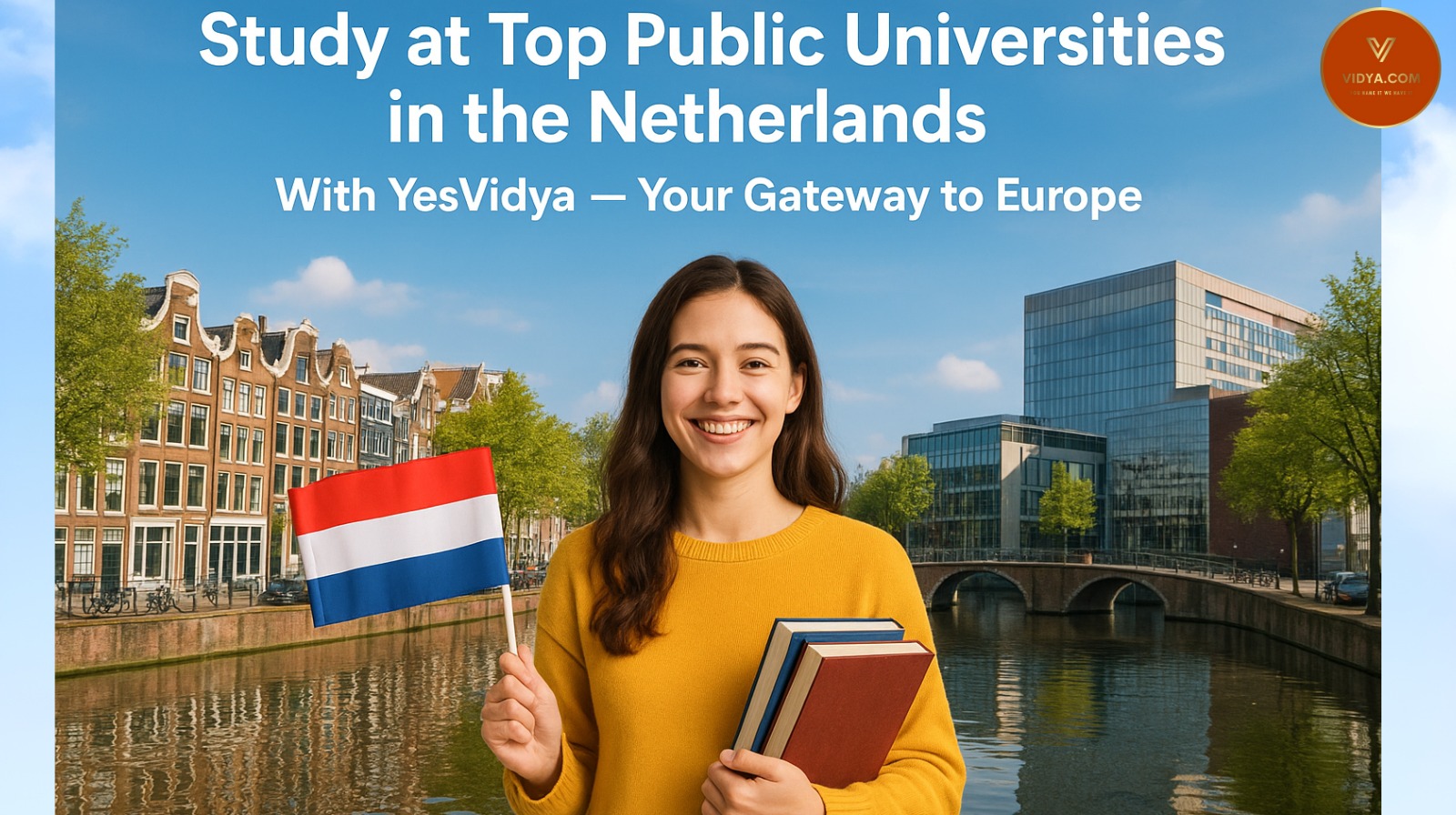Blogs - The Smart Choice: English Degrees in the Netherlands!
The Smart Choice: English Degrees in the Netherlands!
Table of Contents
The Indian Student's Ultimate Guide to Dutch Higher Ed: Public vs. Private in the Netherlands ????????????
Increasingly, Indian students are choosing the Netherlands because it offers high-quality degrees taught in English and a vibrant, multicultural environment. You need to make a huge choice before you apply: do you want to enrol in a public research institution or a private university of applied sciences?
Both schools give you degrees that are recognised all around the world, but they are significantly different in terms of what they focus on, how much they cost, and what life is like on campus. Here's a detailed guide to help you make the best career choice.
1. Academic Focus: Research vs. Practice
The Dutch system's approach to academics is the most crucial difference.
Universities—WO (Public Research Universities)
These colleges, including TU Delft, the University of Amsterdam, and Leiden, place a strong emphasis on research and theory. They are ranked globally and are ideal for pursuing a Master's or PhD, working in academia, or transitioning into a career that requires extensive theoretical knowledge, such as pure science, advanced engineering, or law.
The best thing about it is that you receive recognition worldwide and have access to numerous resources, including top-notch libraries and labs.
Private Colleges and Universities of Applied Sciences (Hogescholen - HBO)
These universities, which are mostly private or focused on private issues, place a great deal of importance on learning by doing, practical skills, and courses that are relevant to the corporate world. They emphasise internships, group projects, and hands-on experience in industries like business, hospitality, and IT management to get you ready for a career immediately.
Key Benefit: You work with a small group of individuals, get one-on-one help, and have a strong focus on finding a career once you graduate.
2. The Cost Factor: Fees and Scholarships for Indians ????????????
In general, public schools are a better value for money when it comes to tuition. However, both types of schools provide distinct ways for Indian students to obtain money.
Scholarships and Tuition Breakdown Public Research Universities: For most Bachelor's and Master's programs, students from outside the EU pay an average of €12,000 to €20,000 a year. You can apply for well-known, significant rewards like the NL Scholarship (€5,000), the Amsterdam Merit Scholarship, and the TU Delft Excellence Scholarships.
Private universities and applied sciences: Tuition is typically high, and for some specialised programs, it may exceed €20,000. However, they typically award smaller, specialised scholarships and awards in fields such as business or technology.
Tip: Look into the Orange Tulip Scholarship (OTS). Many of the greatest Dutch colleges (both categories) offer it to Indian students.
3. The Campus Experience: How big it is and how much aid you get
Usually, public colleges have bigger classrooms with more than 30,000 students. This is ideal for kids who learn best in a large, active, multicultural environment.
Private and applied sciences classrooms are smaller, with usually fewer than 30 students. This makes the learning environment more personal. This is ideal for students who want to spend more time with their lecturers and receive feedback promptly.
What is the best way for you to go? (YesVidya's Choice)
If you want to attend a public university for research,
You want to work in academia, which means acquiring a PhD or undertaking advanced research.
Because your budget is tighter, you can acquire huge, merit-based, publicly funded scholarships.
If you study STEM, law, or social sciences, Dutch public institutions worldwide hold these subjects in high regard.
If you wish to go to a private or applied sciences school,
You want a straight career, so you want to get hands-on training, do internships, and be ready for a job right away.
You learn best in small, close-knit groups, and you appreciate getting one-on-one attention.
You study hospitality, design, business, or IT. Most of the time, these programs are quite exclusive to one field or area.
There are a lot of fun things to do and see in the Netherlands, and getting a Post-Study Work Visa (Orientation Year Visa) is uncomplicated. If you go to a public school or a private school, the way you learn will be different
